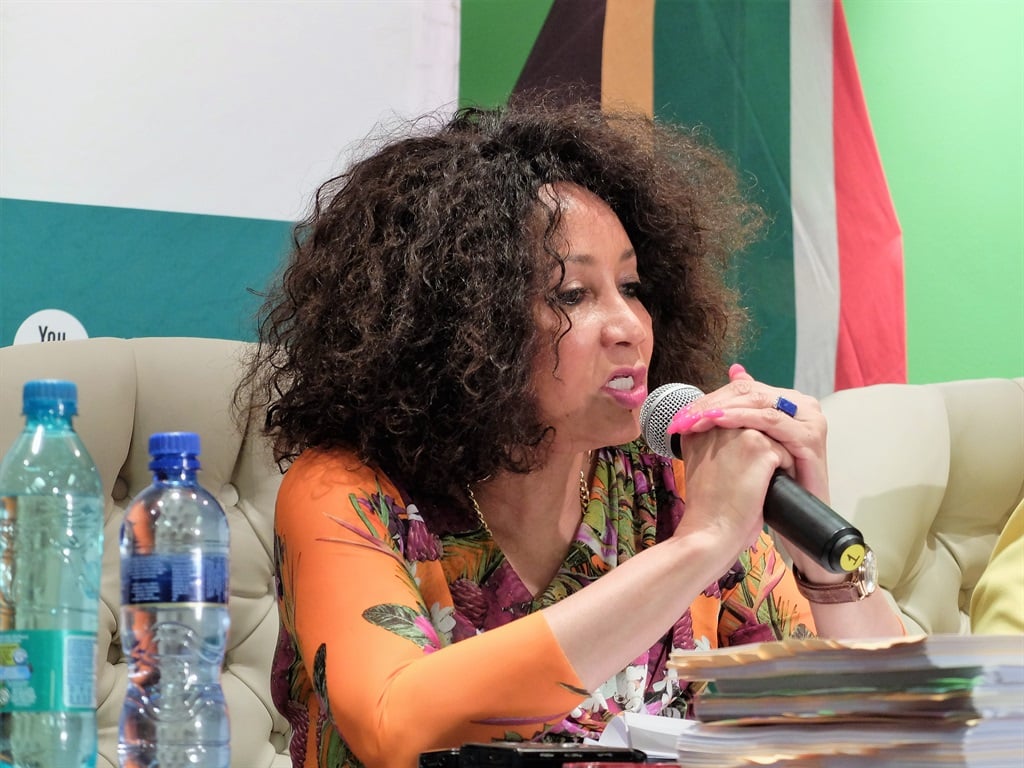
Government missed a diplomatic opportunity to publicly challenge some of the developed countries to ensure their multinational companies that do business in South Africa subscribe to domestic laws, writes Mpumelelo Mkhabela.
There is no self-respecting government in the world that would like South Africa's constitutional democracy to collapse. Only dodgy governments could entertain such a despicable idea.
Regardless of our many internal problems and our occasional self-harming behaviour, we are a responsible member of the international community. The West and the East, to use Cold War-era language, would like South Africa to succeed. We are of strategic importance to them.
Our government is sometime accused of siding with dictators who habitually violate human rights, but that's largely because we want to appease everyone. It makes our foreign policy stance look jelly-fishy. Yet, our democracy is in line with and in some respects better than some developed countries.
READ: SA's hysterical reaction to 'Western imperialists' will simply drive away investment
When there are signs that we are losing our way, those countries with which we share democratic ideals and values would be the first to be concerned and speak out. They wouldn't want to lose a valuable ally who also happen to be a host of their material interests in terms of foreign direct investment. The fact that our government prefers quiet diplomacy and defers too much to the principle of sovereignty in its dealings with other states doesn't mean that they will apply the same diplomatic instrument on us.
It was in this context that the document sent to President Cyril Ramaphosa by some developed countries, in which they raised concerns about the rule of law and corruption, should be understood. The public uproar that followed was unnecessary. South African officials elevated procedure (protocol) above substance.
All right-thinking South Africans and Ramaphosa himself have raised the same concerns contained in the diplomatic submission. There was no need for alarm. The diplomats were adding their voice to legitimate domestic concerns. As diplomatic friends of South Africa they were entitled to do so given the gravity of the governance issues that threaten to derail our national progress.
International Relations Minister Lindiwe Sisulu has since met with diplomats from the United States, Germany, United Kingdom, Switzerland and the Netherlands. After the meeting her department issued a measured statement saying there was "misunderstanding".
Maybe there was. But there is little doubt that the document – long submitted to Ramaphosa's office – was strategically leaked to reinforce the message contained in it. The public nature of the concerns raised and Ramaphosa's subsequent measured response mean that the submission had received the necessary attention. It served the purpose.
The Zanu-PF type of response from some people at Luthuli House was unnecessary. South Africa is not Zimbabwe. The ANC must not conduct itself like Zanu-PF. Labelling concerns raised by developed countries who are heavily invested in South Africa as some form of regime change was extreme.
The government missed a diplomatic opportunity to publicly challenge some of the developed countries to ensure their multinational companies that do business in South Africa subscribe to domestic laws. Some of them have worked with dodgy politicians and Gupta-linked companies to enable state capture.
McKinsey & Company is an American company with headquarters in New York. It earned handsome profits from Transnet and Eskom through corrupt relationships with a Gupta-linked entity. McKinsey returned some of the money.
It's not enough. To ensure there is the rule of law as suggested by, among others, the US diplomat who co-authored the submission to Ramaphosa, McKinsey must reveal to the South African authorities how the deals were done. McKinsey must approach Deputy Chief Justice Raymond Zondo with evidence of how it got to do deals with state entities via the Guptas. Were McKinsey's officials coerced to enter into an arrangement with Gupta-linked Trillian or were they acting on their own? Who were the politicians and officials behind the deals?
ALSO READ: When the filth of corruption infiltrates an entire society
Another US-based consultancy, Bain & Company which has headquarters in Boston, Massachusetts, was at the centre of the governance collapse of the South African Revenue Service under Tom Moyane. Evidence before retired Judge Robert Nugent inquiry showed how Bain's consultancy deal was struck with Moyane even before he was employed as a boss of the revenue collector. Bain also offered to return the loot. But the South African government should challenge the US government to publicly condemn such behaviour.
The same should apply to SAP, the German software developer that admitted to having paid commissions to Gupta-linked entities. For South Africa to restore the rule of law, Germany could be of assistance in ensuring that companies like SAP respect the laws of the country where they are invested. Where they break the law the German government should assist in ensuring there is recourse.
The UK government was largely quiet when British PR firm Bell Pottinger sought to trigger racial tension in South Africa as part of state capture. It took South Africa's official opposition, civil society, the media and British MP Peter Hain to publicly campaign vigorously against the activities of Bell Pottinger. The company collapsed thanks to those efforts. Now, who said megaphone diplomacy doesn't work?
Like the countries on whose behalf a memo was sent to Ramaphosa, South Africa is signatory to the OECD convention on bribery. In the spirit of the convention, these countries should work together with South Africa to prevent looting of public funds and restore the rule of law in the private and public sectors.
The submission to Ramaphosa must not be allowed to go to waste. He must use it to South Africa's advantage by procuring assistance from these countries to deal with corruption. The Western countries should also speak out if South African authorities reject whatever assistance they offer.
- Mkhabela is a regular columnist for News24.
Disclaimer: News24 encourages freedom of speech and the expression of diverse views. The views of columnists published on News24 are therefore their own and do not necessarily represent the views of News24.




 Publications
Publications
 Partners
Partners























